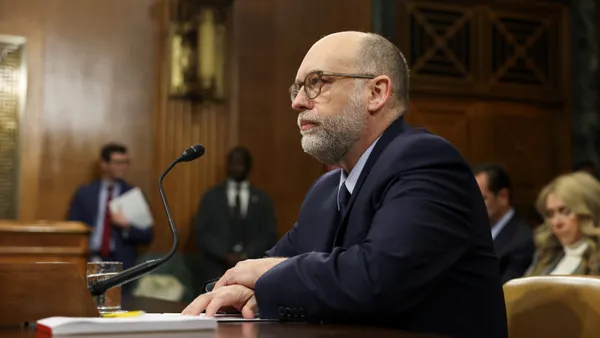Rina Wulfing is a senior manager for North America policy and campaigns at London-based, cross-border payments company Wise. She is based in New York.
By now, most of us will have heard of “junk fees.”
Last year, the Biden Administration announced a crackdown across industries to protect Americans from punitive charges that cost them billions of dollars annually.
As protections have slowly expanded to the financial sector over the last few months, the Consumer Financial Protection Bureau announced in March that it would specifically take action against international money transfer providers making false claims of “free” international payment transfers.
While this action is necessary to bring greater transparency to financial services, it will also require much-guided execution to facilitate the intended changes.
In this increasingly complex industry, one thing is abundantly clear: expanding consumer protections to this area of financial services is critical. International payments are riddled with hidden fees in the U.S., which is the largest source of remittances worldwide. These hidden fees, often erroneously labeled “fee-free,” are actually embedded within a bloated exchange rate and have a profound impact.
In 2023 alone, exchange rate markups cost U.S. consumers $5.8 billion, affecting everyone from immigrants sending remittances to families, service members sending money home, and small businesses going global.
This figure underscores the necessity of further action from policymakers — the issuance of last month’s CFPB announcement is hopefully just the beginning — as this is not just a financial issue but also a matter of fairness and economic justice.
Putting these regulations into practice is challenging, and the success of such regulatory measures largely hinges on enforcement — which has been a challenge for other countries that have implemented similar regulations.
The CFPB now faces a critical juncture where it must enforce the prohibition of junk fees hidden within inflated exchange rates. Based on our experience, it's likely that providers may seek creative ways to circumvent the CFPB's mandates, such as advertising a "$1 fee" rather than "no fee," while still embedding the actual costs within an inflated exchange rate.
The industry needs precise and actionable guidance. Specifically, any markup on exchange rates must be transparently disclosed. To facilitate this, the CFPB could consider updating its remittance rule or issuing additional supervisory guidance that mandates providers disclose the total cost of a payment transparently. Such steps are essential for ensuring that regulations have their intended effect and genuinely protect consumers.
The CFPB's initiative to halt these deceptive practices is crucial, and both consumers and the industry stand to benefit. Clarity and transparency foster increased competition among providers, spurring innovation and reducing consumer costs. Ensuring that international payments are fully transparent and consistently priced allows consumers to easily compare services across different providers — and be empowered to decide the one that best suits their needs.
It’s not just good for business. It’s the right thing to do.











